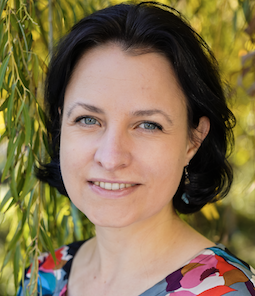 Dr. Carmen Lea Dege
Dr. Carmen Lea Dege
Areas of specialization:
Myth, Uncertainty, Politics of Loss, (Post-)Metaphysical Thinking, Science Denialism, Climate Crisis, Social Criticism
Areas of competence:
Modern and Contemporary History of Political Thought, Critical Theory, Democratic Theory, Political Theology, Existentialism
Personal Website
Dr. Carmen Lea Dege received her PhD in Political Science from Yale University and teaches Political Theory at Hebrew University. In 2022/23, she is a Visiting Scholar at the Center for European Studies at Harvard University.
Dr. Dege’s work is situated within critical and democratic theory, existentialism, and political theology, and focuses on the role of myth and ignorance for political knowledge and action. On a historical level, she is interested in tracing how societies have responded to uncertainty. She suggests to shift the focus of the current “post-truth era” from a fixation on epistemological and cognitive certainty to practical and existential aspects of belief and the place of “useful untruths” in democratic societies. Exploring the concepts of myth and ignorance (in contrast to conspiracy theory, ideology, or illusion) allows her to examine the significance of non-knowledge for democracy and evaluate political practices of rage, anger, and resentment independently of their rational definitions as “negative” emotions. As a result, Dege outlines an alternative approach to science denialism that goes beyond the currently dominant strategies of fact-checking, shaming practices, and better efforts to communicate knowledge.
Before graduating from Yale University and becoming a Polonsky Fellow, Dr. Dege received a Master’s degree in the Social Sciences from the University of Chicago and a Diploma degree in Political Science from Freie Universität Berlin.
Recent Publications
- “Myth, Modernity, and the Legacy of the Axial Age,” Journal of the History of Ideas, forthcoming.
- “‘Standing behind your phrase’ – Arendt and Jaspers on the (Post-)Metaphysics of Evil,” European Journal of Political Theory, Online First, November 24, 2021.
- “To Karl Jaspers, Uncertainty Is Not to Be Overcome but Understood,” Aeon+Psyche, September 9, 2020.
- “2020’s Existentialist Turn,” Boston Review, August 24, 2020.
- “Diversity in Unity in Disenchanted Times: Max Weber’s Challenge and Karl Jaspers’s Response,” Philosophy & Social Criticism, 46(6), 2020, 703-733.
- “Bound by Disenchantment, Review of This Life: Secular Faith and Spiritual Freedom, by Martin Hägglund,” New Rambler Review, September 18, 2019.